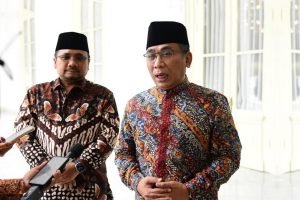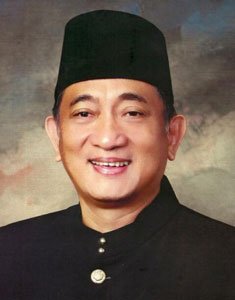Lainnya
Jakarta – New Indonesia Research & Consulting survey results show that the electability of the Indonesian Democratic Party (PDI) Perjuangan is the highest compared to other parties.
“The electability of PDIP is still the highest and has increased to 29.3 percent, proving that PDIP is still strong at the top,” Executive Director of New Indonesia Research & Consulting Andreas Nuryono said in a press release on Sunday.
Megawati Sukarnoputri’s party has broken the record by winning three elections since post-reform. The number of PDIP votes in the 2019 elections reached 19.3 percent.
The map of political parties, he said, is predicted not to be too different from the vote acquisition results from the 2019 elections.
Gerindra and Golkar followed in the second and third positions, with electability of 12.5 percent and 9.7 percent respectively. Previous votes had only been narrow, 12.6 percent and 12.3 percent.
In the middle board there are PKB (6.8 percent), PKS (5.5 percent), PSI (4.2 percent), NasDem (4.1 percent), Democrats (3.8 percent), PPP (2.4 percent) percent), and PAN (1.6 percent). In the 2019 elections PKB gained 9.7 percent, PKS 8.2 percent, PSI 1.9 percent, NasDem 9.1 percent, Democrats 7.8 percent, PPP 4.3 percent, and PAN 6.8 percent.
“Compared to the results of the 2019 elections, only PDIP and the Indonesian Solidarity Party (PSI) have experienced an increase in electability,” Andreas said.
Though from the previous vote acquisition PSI could not have a representative in Senayan.
According to Andreas, PSI’s performance at the DPRD level has proven to be as effective as PDIP at the national level.
On the bottom row are Perindo (0.9 percent), Karya (0.7 percent), Hanura (0.3 percent), PBB (0.2 percent), PKPI (0.1 percent), and Garuda (0, 1 percent). In the 2019 elections Perindo won 2.7 percent, Berkarya 2.1 percent, Hanura 1.5 percent, PBB 0.8 percent, PKPI 0.2 percent, and Garuda 0.5 percent.
The remaining 17.1 percent said they did not know or did not answer. The survey has not recorded the emergence of new parties such as the Gelora or the Amien Rais PAN fraction.
“There is still time for the next four years where the electability of political parties can increase or decrease,” Andreas said.
The New Indonesia Research & Consulting survey was conducted on June 8-18, 2020, with 1,200 respondents. The survey method was carried out by telephone to randomly selected respondents from the previous survey. The survey margin of error was around 2.89 percent and at a 95 percent confidence level. (Ant)
*English by Tokoh.ID system.











